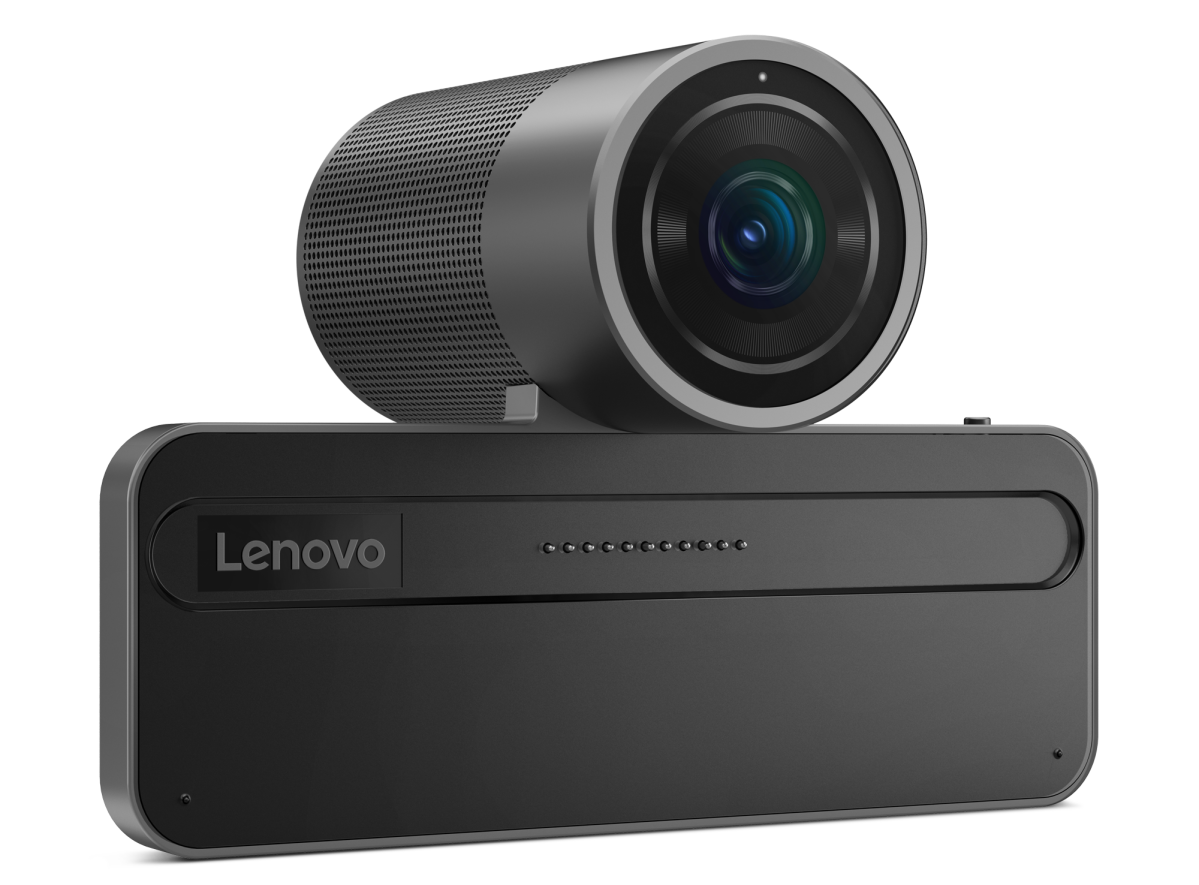Laptop computers trade utility for portability. That’s part of their very design DNA, a sacrifice so fundamental that we barely even think about it anymore. But Lenovo is trying out a couple of new ideas that could bridge that utility gap, creating a new type of laptop accessory that effortlessly expands the device’s capability. It’s called “Magic Bay,” and it’s coming to market…or at least part of it is. Brad Chacos got to try it out on the CES show floor.
Magic Bay adds a modular expansion to the top of a standard laptop design, just above where the webcam usually rests. The latest iterations of the ThinkBook 13X and ThinkBook 16P are equipped with this dock, which combines strong magnets and POGO pins (as seen on tablets and some smartwatches) to easily attach and remove extra gadgets with a fast USB 3.0 data connection. The first showcase for this tech is an add-on that gives the laptop a far more powerful webcam and extra speakers.
The “Magic Bay Studio” accessory adds a 4K camera with a 90-degree field of view, HDR processing, 4X digital zoom, auto-focus, auto exposure, auto white balance…you get the picture. It’s a nice camera, the kind that generally requires a lot more space and a full USB connection. It also adds an extra pair of two-watt speakers, which act in tandem with the laptop’s existing speakers to add a fuller voice profile. While keeping this thing attached to your laptop full-time would make it a lot more bulky, it’s easy to pop on and off and slide right into your bag.
The souped-up camera is the only Magic Bay attachment that Lenovo has confirmed will come to market. Other ideas on display at CES are a more premium directional microphone, an add-on card reader, an extra circular screen apparently used exclusively for emoji, and even a cooling fan (for you, not the computer) and aromatherapy scent spreader. Neat. All of them can be installed and removed simply by placing them on the magnetic port.

Lenovo
But if I put on my critical thinking cap for a moment, I have to say I can’t see this system catching on. In terms of pure capability, the Magic Bay connector is just a slightly sleeker way to plug in a USB cable. And USB already covers so many of these practical tools without the need for a specific format with extra magnets (not to mention a licensing fee to Lenovo, if third parties wanted to join in). Similar modular designs have failed to catch on before, as the market simply gravitates to what’s smallest, cheapest, and easiest to use. Even the Magic Bay Studio isn’t doing anything more than a Logitech webcam could, and costs a good bit more for the same capability.
But that’s just one tech writer’s opinion. And I’d be a real sourpuss to dismiss the idea before it comes to market, when the ThinkBook 13X Gen 4 and ThinkBook 16P Gen 5 launch sometime in the first quarter of 2024, starting at $1,399 and $1,599 respectively. The Magic Bay Studio will be available in April for $199.99. To see more of the latest and greatest tech at CES, be sure to subscribe to PCWorld on YouTube.




